/// CHALLENGES ///
The challenges of this year’s hackathon week (see below) are concrete challenges that have a direct impact on coastal and marine protection in Schleswig-Holstein and globally. They were submitted during the warm-up phase in various discussions with researchers from transfer projects and via a public call.
All selected challenges contribute to at least one of the four challenge areas of the UN Ocean Decade.
- Challenge area 4: Sustainable & fair maritime economy
- Challenge area 5: Ocean and climate change
- Challenge area 7: Global ocean observation system
- Challenge area 9: Skills & technologies for all
The focus is on solutions, i.e. new products, technologies and business models for a sustainable maritime economy.
You will receive further background information on the data sets, images, materials, etc. that you need to solve the challenge after registering on the first day of the hackathon week. You will get to know the challengers over the course of the next few weeks via our social media channels and at the start of the hackathon week.
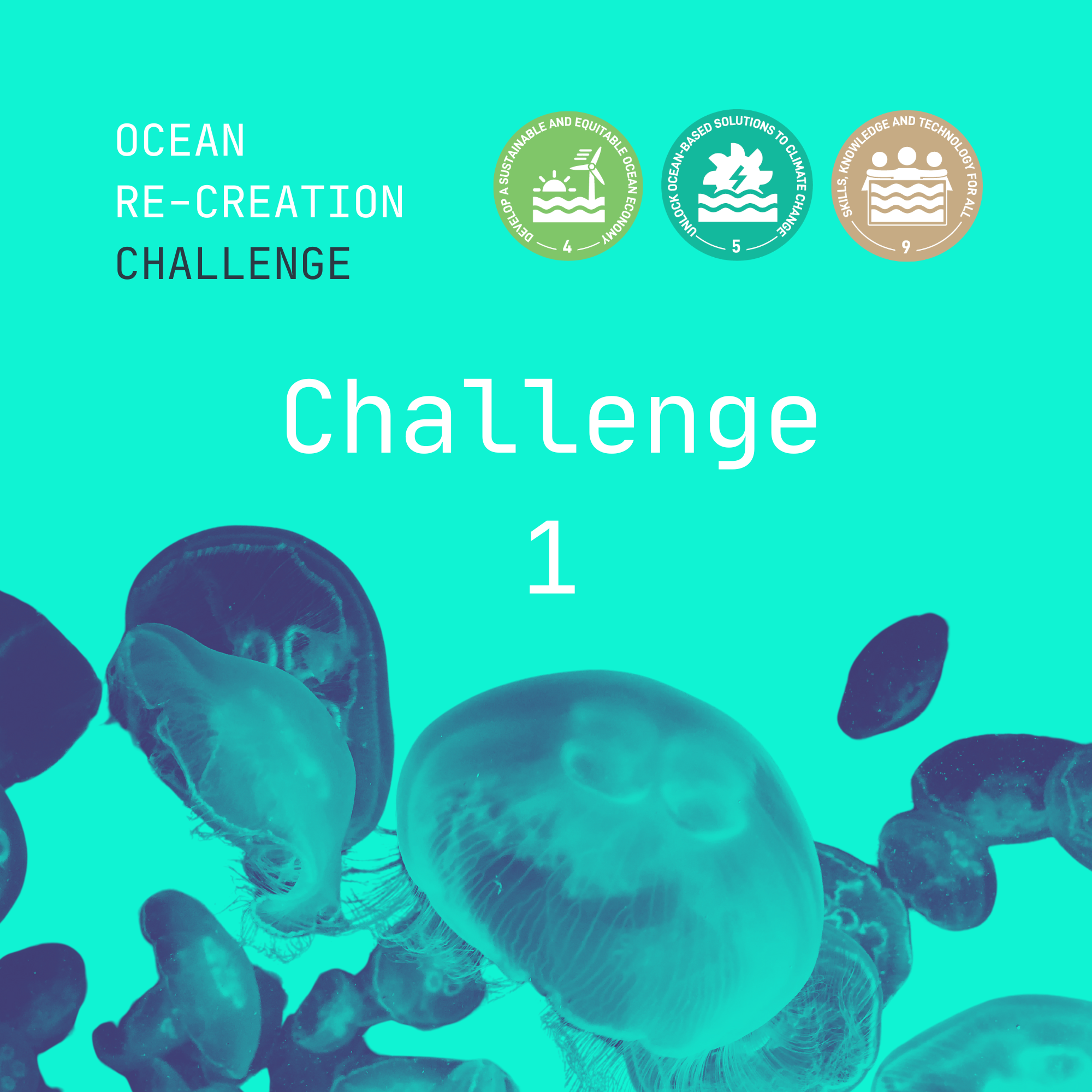
WaterLinks – Remote control for emission-free ferries
Join the WaterLinks project at Kiel University of Applied Sciences and revolutionize the design of electrically powered small vessels such as passenger ferries. Our aim is to relieve urban roads and reduce emissions by promoting sustainable water transportation.
CHALLENGE
Design a modular remote control system for small, emission-free passenger ferries. Your solution should allow both pre-programmed automatic maneuvers and manual remote control. High precision, reliability and sensor integration are essential.
Requirements
- Modularity: Easy integration and adaptation to different ship models.
- Automated & Manual control: Support for both modes for versatile testing.
- Precision: Ensuring accurate data acquisition and maneuver execution.
- Sensor integration: real-time data to improve control.
- User interface: Intuitive for easy switching between control modes.
- Scalability: Expandable for future applications.
CONTACT | CHALLENGER
- Julius Kämmel, project employee Water Links
- Prof. Dr.-Ing. Hendrik Dankowski
WHO IS THE CHALLENGE FOR?
Potential participants in the WaterLinks Hackathon Challenge could be:
- Engineers and developers with experience in robotics and vehicle control technology.
- Software developers with knowledge of programming control systems and user interfaces.
- Electrical engineers with expertise in the integration of sensors and electronics.
- Experts in maritime technology and shipbuilding who are interested in the development of emission-free ships.
- Students and researchers with an interest in innovative solutions for sustainable blue mobility.
- Companies interested in the development of technologies for emission-free shipping.
Participants should have specialist knowledge and experience in the areas mentioned and be prepared to develop creative and innovative solutions to the challenges of electrically powered ship design.
#Prototyping #UX Design #Interview techniques #Design Thinking #Teamwork #Mechanical engineering #Business modeling #Drawing #Technical construction #Sensor technology
Above all: curiosity and a desire to experiment!
PRICE CATEGORY
Price
The winning solution will help shape the future of urban water transportation and may be implemented in real field trials and future ferry designs. You will also receive support in implementing the business model, including access to networks of scientists, investors and industry partners.
Join in and pave the way for sustainable blue mobility!
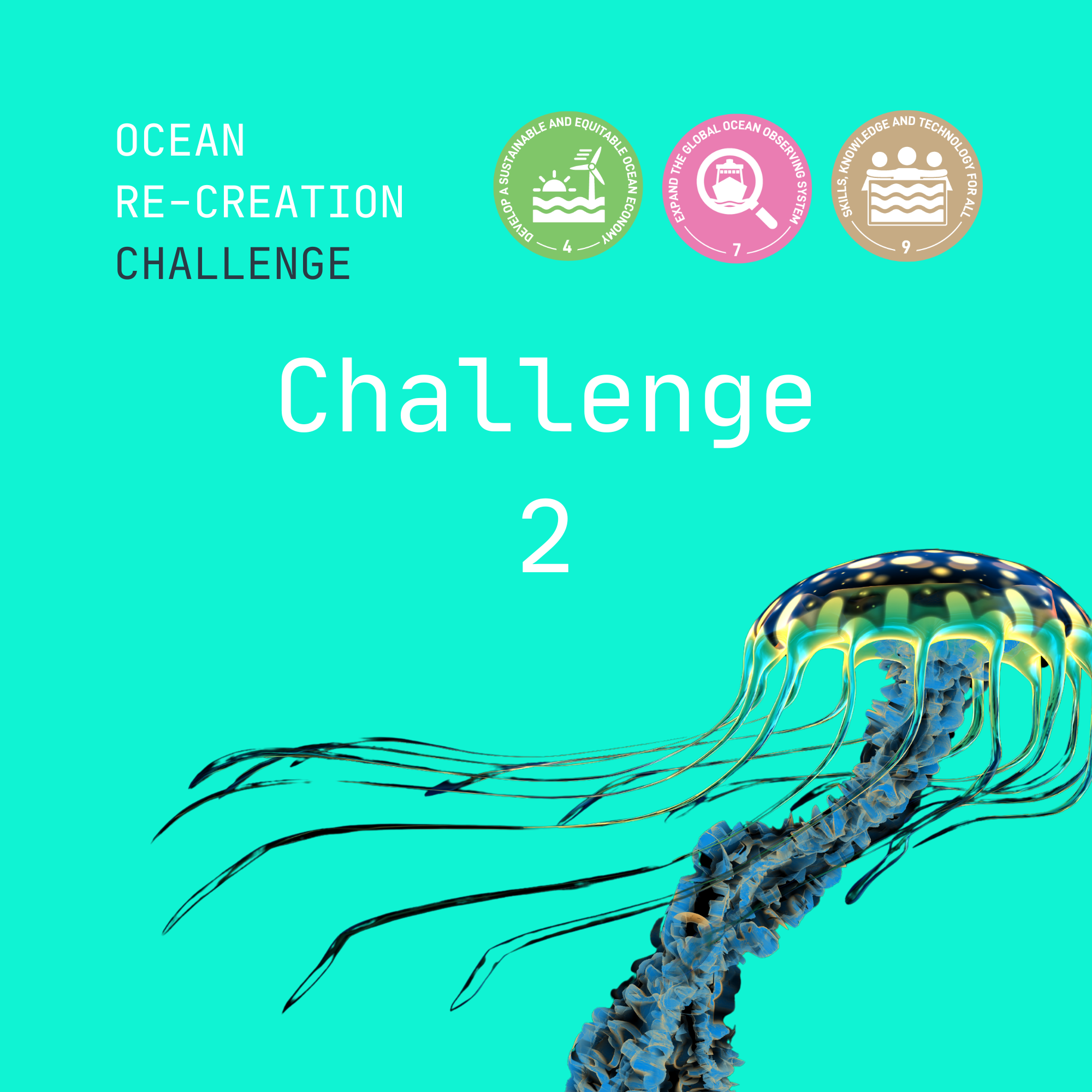
Ocean Data A – Ocean Data
from Sailing Boxes
The three Helmholtz Centers GEOMAR in Kiel, Alfred Wegener Institute (AWI) in Bremerhaven and Hereon in Geesthacht have jointly set themselves the goal of using innovative methods to better understand the complex ocean system, especially with regard to its function in climate change. The expansion of oceanographic measurements plays a major role in this.
To this end, private sailing boats are put at the service of science and ocean observation.
These boats will be equipped with sensors that collect data on temperature,CO2, salinity, dissolved oxygen, pH and chlorophyll, for example, and will be made available to science, industry and society via the joint innovation platform SOOP (Shaping an Ocean of Possibilities).
The data collected will help to more accurately determine the ocean’s ability to absorbCO2 from the atmosphere, among other things, and thus contribute to more precise climate projections and more effective climate protection measures. So the possibilities and opportunities are great!
CHALLENGE
Design a business model based on the data(open access data) that these Sailing Boxes collect.
The key question here is who benefits from the data?
Your business model should also include innovative marketing strategies. This challenge is real pioneering work and opens up completely new markets in the rapidly growing New Blue Economy.
Note
All rights concerning the hardware remain with the developers.
CONTACT | CHALLENGER
- Esther Rickert, SOOP project team member
- Kathrin Krüger-Borgwardt – Head of Technology Transfer at GEOMAR
WHO IS THE CHALLENGE FOR?
Potential participants in the Sailing Box Challenge could be:
- Start-ups that specialize in maritime data analytics.
- Engineers and developers with experience in the integration of sensors and maritime technology.
- Scientists and researchers in the fields of oceanography and climate research.
- Entrepreneurs who want to develop sustainable business models for the collection of ocean data.
- Environmental organizations and NGOs that focus on marine conservation and research.
- Citizens and sailing enthusiasts who are passionate about ocean exploration and environmental monitoring.
Participants should have a combination of technical skills, scientific knowledge and entrepreneurial spirit to effectively tackle the challenge and develop innovative solutions for ocean exploration.
#Prototyping #UX Design #Interview techniques #Design Thinking #Sonar technique #Python
Above all: curiosity and enjoyment of tinkering, business modeling and technical construction!
PRICE CATEGORY
Price
The best solution will receive support in implementing the business model, including access to networks of scientists, investors and industry partners. In addition, the winning team will be invited to take part in an (inter)national specialist conference to present their solution.
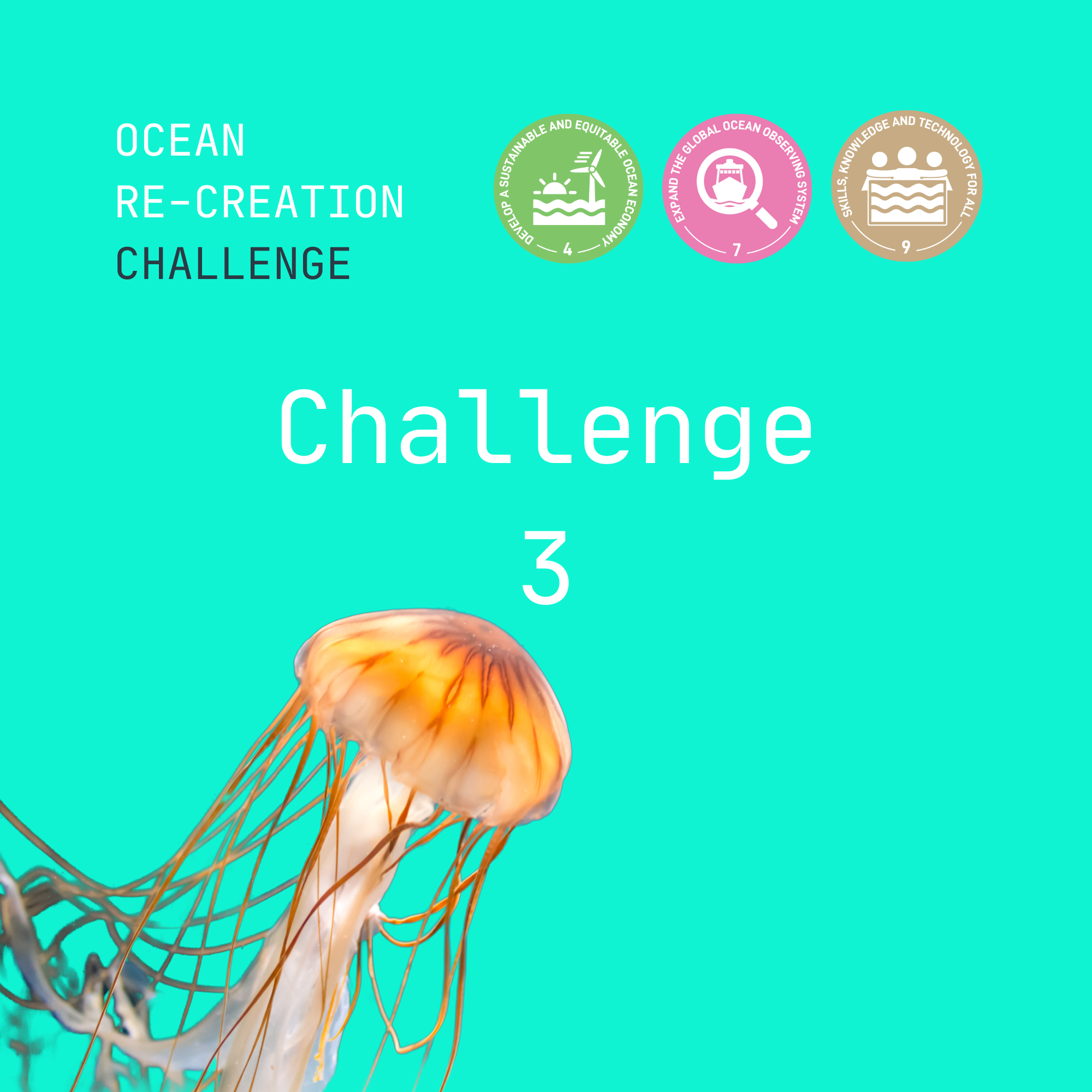
Ocean Data B – Ocean Data
from Plankton Camera
As part of SOOP and in collaboration with OpenUC2, a camera system for analyzing plankton and particulate organic matter (POM) was developed. The aim is to deploy this system on various ships worldwide in order to improve plankton and POM data collection.
CHALLENGE
Develops a business model that commercializes the plankton data collected by citizen scientists on ships(open access data). The business model should also include innovative marketing strategies. You will receive a data set made available.
Representatives of the SOOP innovation platform and the online developers of the camera system will be available to answer your questions.
Note
All rights relating to the hardware remain with the developers.
CONTACT | CHALLENGER
- Esther Rickert, SOOP project team member
- Helmholtz Center Hereon
- Kathrin Krüger-Borgwardt – Head of Technology Transfer at GEOMAR
WHO IS THE CHALLENGE FOR?
The potential participants in this challenge could be:
- Start-ups specializing in the development of business models for ocean exploration.
- Research teams from academic institutions that are working on innovative approaches to plankton detection and analysis and are interested in developing a business model in this field.
- Engineers and technicians with experience in image processing.
- Data scientists and AI experts who deal with the analysis of image and sensor data.
- Entrepreneurs and managing directors who are interested in developing business models in the field of marine environmental technology.
- Investors and sponsors who want to invest in innovative projects in the field of ocean research.
Participants should have expertise in marine biology, engineering, data analysis and/or business development to successfully participate in the challenge.
#Prototyping #Entrepreneurship #Interview techniques #Design Thinking #Technical know-how #Business modeling #Image processing #Material sciences
Above all, we enjoy developing data-based business areas!
PRICE CATEGORY
Price
The best solution receives financial support for the implementation of the business plan.model and access to a network of scientists, investors and industry partners. The winning team will also be invited to present at an (inter)national conference.
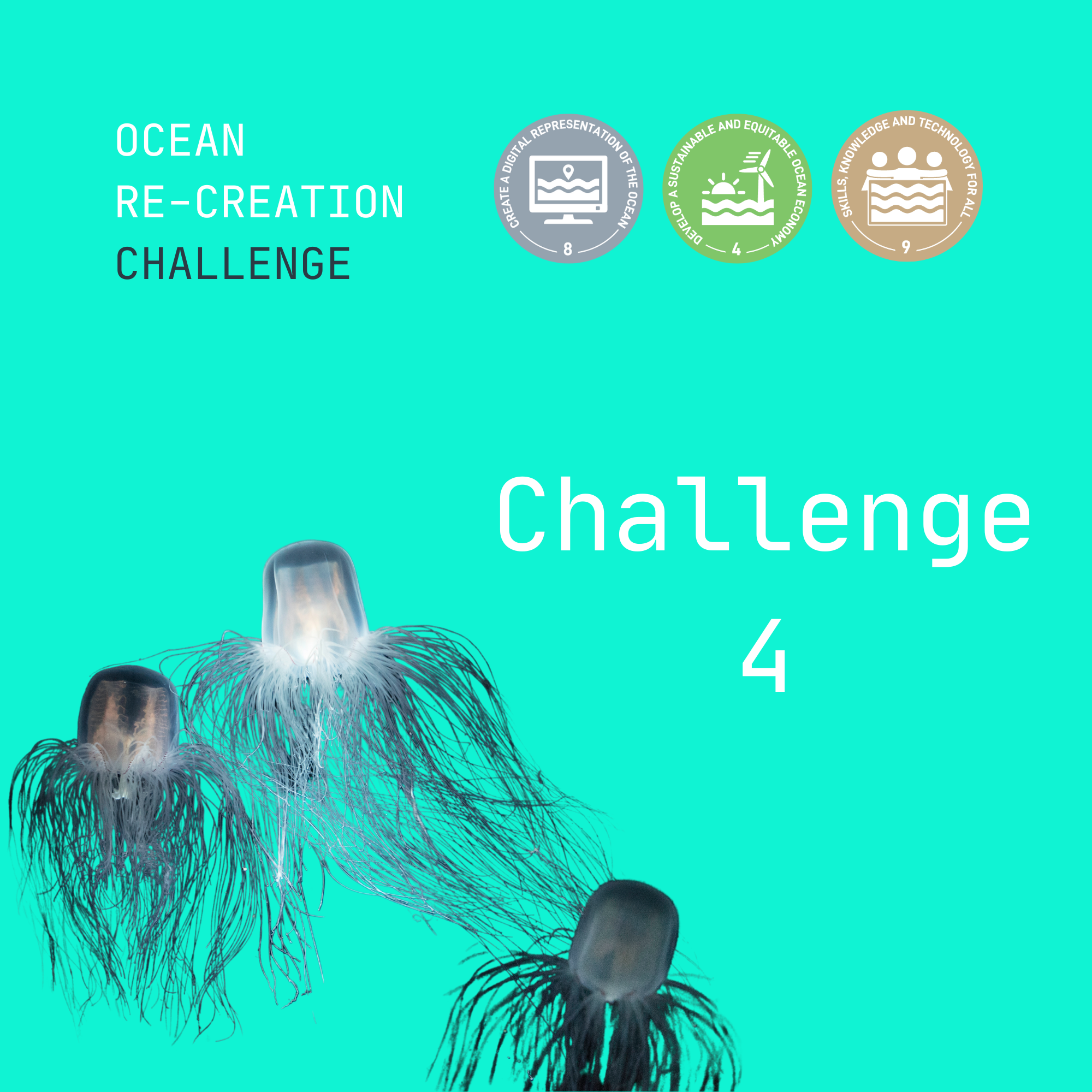
Carbon Removal Challenge – A data atlas with value creation potential
The carbon market is crucial in the fight against climate change. But it is complex and susceptible to greenwashing. Many CO2 certificates are questionable, while reliable ones are rare and expensive. We must not only reduce emissions, but also act wisely to create trustworthy CO2 compensation processes.
Potential impact of the Carbon Removal Atlas:
The carbon market urgently needs better data on CO2 storage to strengthen its credibility. The Carbon Removal Atlas can achieve this through clear, scientifically proven data.
CHALLENGE
You can make a difference by turning scientific findings into useful tools for politicians, regulators and other stakeholders.authorities and companies. In addition, create cost models that you coordinate with the CDR Atlas team. This is because they ensure the long-term functionality of the platform.
Key questions:
- What could a viable business model look like?
- What could be digital services and services for third-party providers that are compatible with the CDR Atlas and the underlying data pool?
CONTACT | CHALLENGER
- Team TransMarTech SH GmbH
WHO IS THE CHALLENGE FOR?
Potential participants for this Hackathon Challenge could be:
- Data scientists and developers interested in creating and analyzing data for the Carbon Removal Atlas.
- Climate researchers and scientists who can contribute expertise in CO2 storage and measurement.
- Entrepreneurs and innovators who want to develop new technologies and business models to improve the carbon market.
- Policymakers and regulators interested in shaping policies and regulations to promote trustworthy carbon credits.
- Industry representatives who are looking for solutions to reduce their carbon footprint using credible offsetting options.
- Communication designers and marketing experts who can put on customer glasses and design complex topics with clear visual and textual language.
Anyone with an interest in helping to tackle climate change and developing innovative solutions for the carbon market is welcome to take up this challenge.
#Prototyping #Carbon Market Knowledge #BWL #Design Thinking #Interfacedesign #Business Modeling #Coding #Innovation Techniques #Communication Design
PRICE CATEGORY
Price:
In addition to non-cash prizes, we also have a surprise prize in store for you at a popular AI Summit.
Join in, get involved and get involved together with other potential participants!
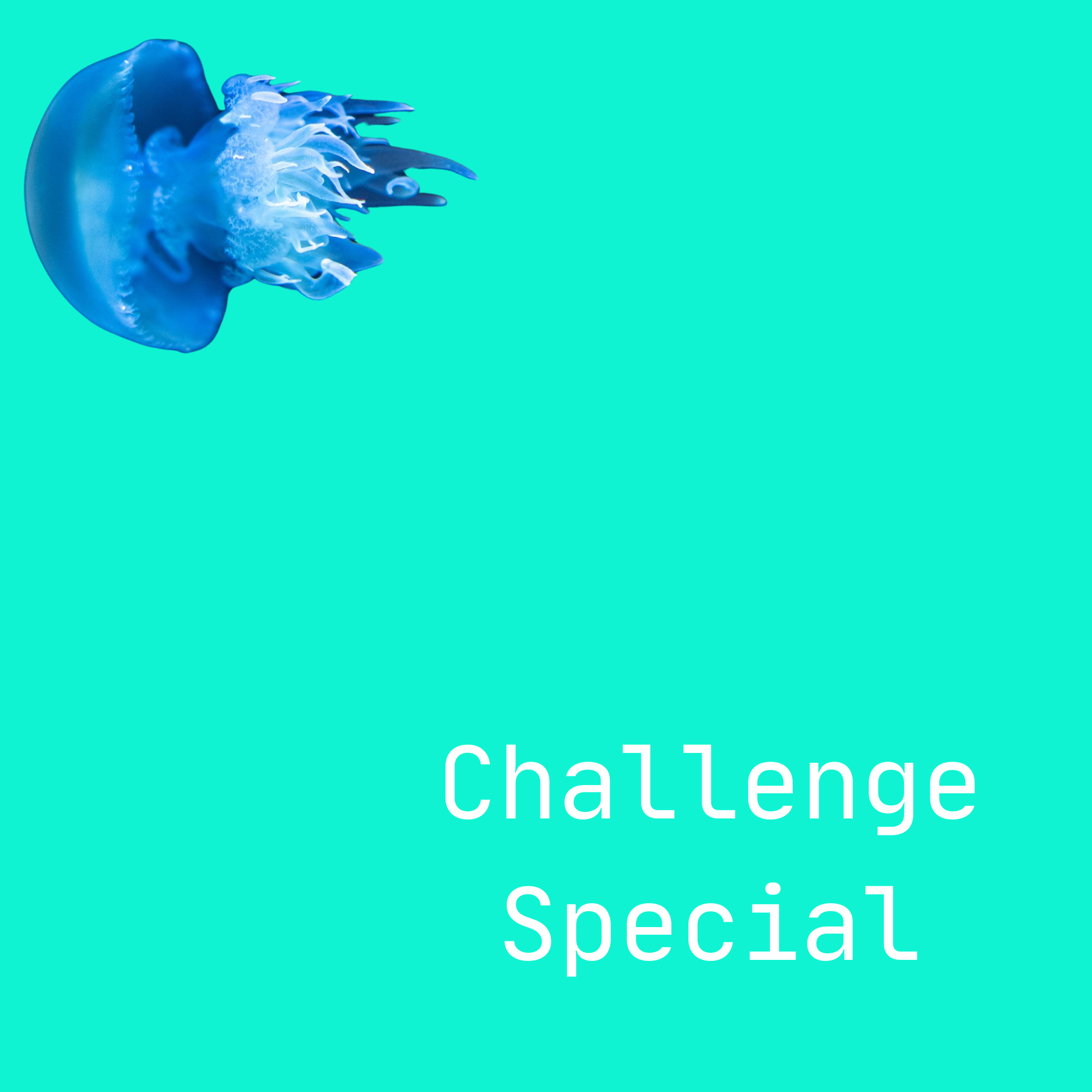
Team Challenge –
Win a Team Wild Card
Are you already working in a “BLUE STARTUP”, but need new impetus for the next level?
Then take advantage of an intensive 4.5-day hackathon to realize your visions while benefiting from a broad network of scientists and industry experts. Describe your challenges and your business vision and apply for a team ticket!
WHICH TEAMS ARE WE LOOKING FOR?
Prerequisite:
- First start-up idea (early stage) in one of the challenge areas of the UN Ocean Decade
- Technology-based business model
#Linux #Robot Operating System (ROS) #C++ or Python #Image processing #Business modeling #BWL #Innovation technologies #Marine technology #Sonar technology #Material sciences #Biology and much more.
Above all, you should enjoy coding and be interested in sustainable blue business ideas!
Apply now with your team and join us as we shape the future of the blue economy together! Use this unique opportunity to drive your ideas forward and have a positive impact on the world.
We look forward to welcoming you and your team to the Make & Hackathon!
WHAT YOU CAN EXPECT
- Access to experts: Our hackathon offers you the unique opportunity to work with leading minds from science and business. Benefit from their expertise, receive valuable feedback on your ideas and make valuable contacts for future partnerships.
- Expand your network: Meet like-minded people and experts from the industry, exchange ideas and build long-term relationships that go beyond the hackathon. Our event offers you the perfect platform to expand your network and meet potential partners or investors.
- Resources and support: We will provide you with resources and support throughout the hackathon to ensure you and your team get the most out of the event. From mentoring sessions to technical support, we’re here to help you succeed.
- Visibility and recognition: Present your ideas to a high-caliber audience from the industry and get the chance to showcase your innovations and impress potential investors or partners. We will recognize your achievements and give you the opportunity to present yourself!
PRICE CATEGORY
2x tickets for teams of 3 people
